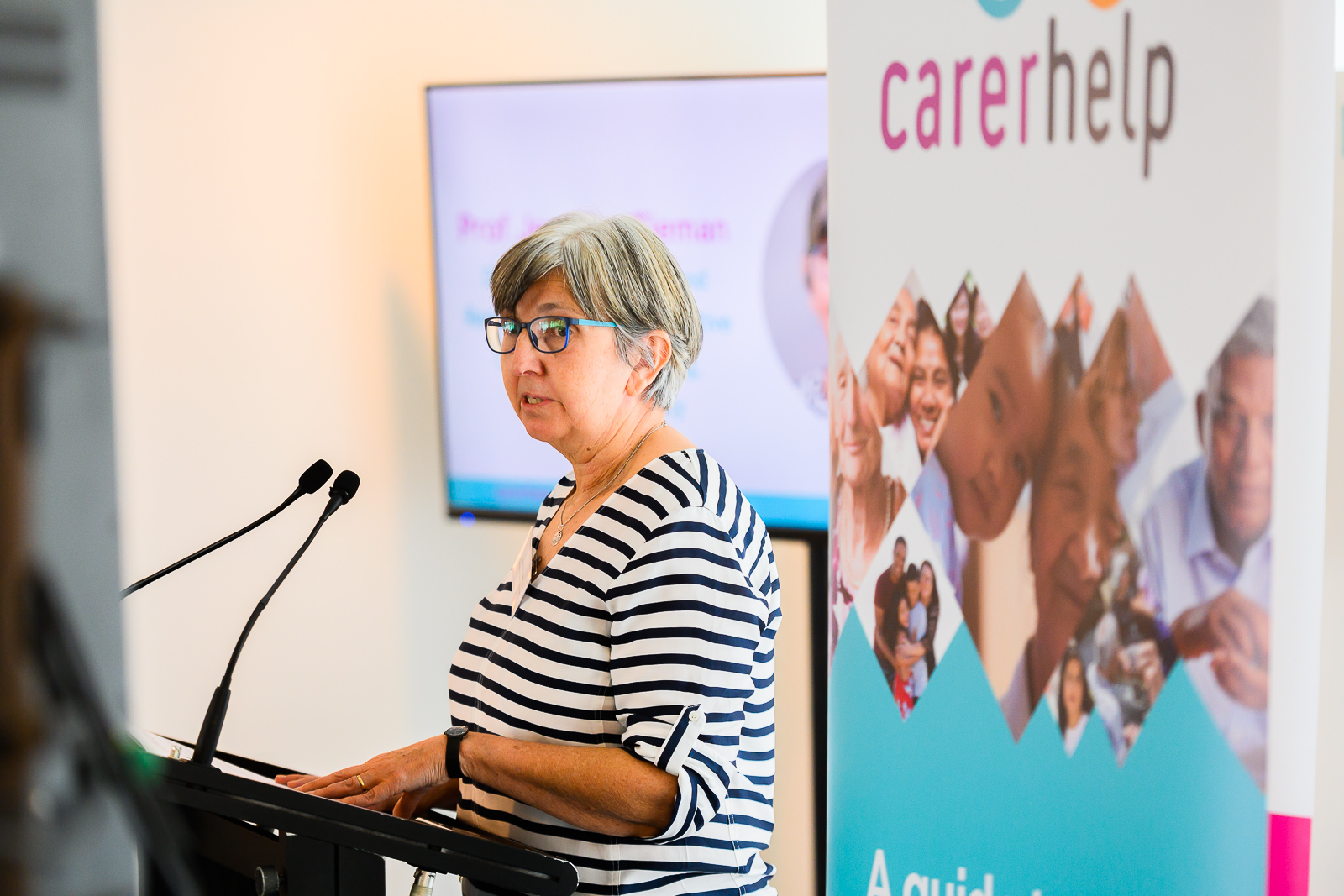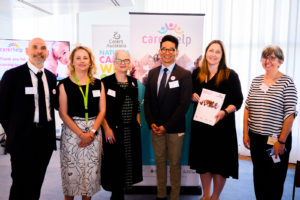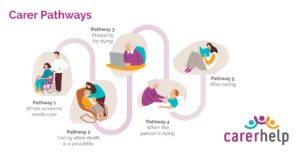
How can we best support unpaid carers when the person they are providing care for is dying? This was the challenging question confronting a national project team as they set about building CarerHelp, a new online resource for carers.
Professor Jennifer Tieman – Matthew Flinders Fellow and Director of the Research Centre for Palliative Care, Death and Dying (REPADD) – said caring for a relative or a friend who is dying can be a rewarding experience, but also very challenging.
“Carers face physical, emotional, financial, social and other difficulties during the course of caring. After the person’s death, carers can face grief and bereavement. Hence it is important that we support carers to plan and prepare,” said Professor Tieman.
To confront the challenge, the team members brought together academic, research, caring and digital expertise from the Centre for Palliative Care of St Vincent’s Hospital Melbourne and The University of Melbourne; Carers Australia; The University of Technology Sydney; and CareSearch under REPADD, which is one of the Caring Futures Institute’s affiliates.

Professor Tieman said the whole project team had to work collaboratively to develop CarerHelp.
“Each of us had different roles. The St Vincent’s Team conducted a systematic review of published evidence on the needs of family carers of patients with advanced disease. They also worked with carers to understand their perspectives on what they needed and what they saw as knowledge and support gaps. They did this by creating a network of carers through interviews and focus groups.”
Once the content was defined, the Flinders team took charge of translating the evidence and the carer feedback into online resources that had meaning for carers.
Many of the carers who had been involved in the focus groups and interviews went on and participated in content review activities and formative user testing.
All of the project partners were involved with a national and international scoping study to identify suitable existing online resources.
Throughout the development, the project team was guided by the knowledge and experience of a very engaged national reference group comprising representatives from approximately 20 peak bodies and institutions.
Designed to empower unpaid carers to care for a partner, parent, or friend at the end of life, CarerHelp needed to have practical and accessible information and tools on what to expect when someone is dying and resources on how to communicate, plan ahead and make shared decisions with family, friends and health professionals.
This involved creating a range of different components including five caring pathways, videos, downloadable topic sheets, interactive tools, and learning modules.

“Quality information is important for carers: it can help enormously to know what to expect, what you need to prepare, and what to say to the person who is dying and to your child, relatives, friends,” said Professor Tieman.
“Knowing how to work in partnership with the doctors, nurses, allied health professionals and care team; as well as how to ensure one’s self-care can help lighten the load.
“Also, sophisticated web based products requires a range of skills and expertise in the project team but it is our carer partners who have provided the critical insights to create resources that have immediate meaning for carers. This is what makes a difference.”

